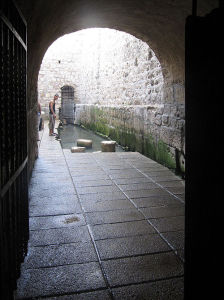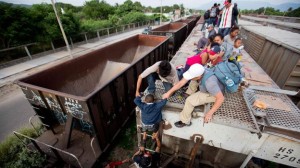Choosing Life Over Land in Genesis 13 and in Peace Politics
Following Abraham and Remembering Rabin
Ayala Emmett
October 31, 2014
Yitzhak Rabin Israel’s Prime Minister was murdered by a man who confessed to hate peace, yet claimed to love God. The shooting took place nineteen years ago at a peace rally at the end of the Sabbath known as Shabbat Lech Lecha, Genesis 12-17, the very Sabbath in which Jews in synagogues around the world read the Torah portion that opens with God’s call to Abraham to literally take himself from his home and go to the land that God would show him.


